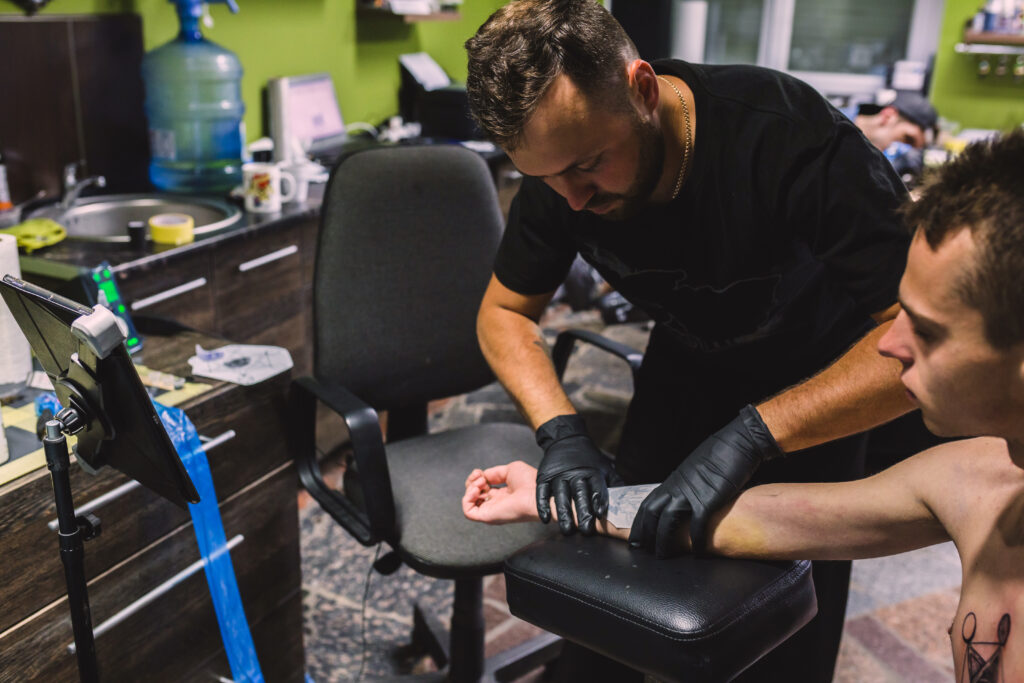“Your In-depth Guide to Tattoo Supplies” comprehensively explores the tools and equipment essential for tattoo artists and enthusiasts. This meticulously crafted guide delves into every facet of the tattooing process, from the foundational instruments to the latest innovations shaping the industry.
Embark on a journey through the intricate world of tattooing as we uncover each supply’s crucial role in achieving stunning body art. From tattoo machines and needles to ink and aftercare products, no stone is left unturned in our quest to provide you with the knowledge needed to excel in the art of tattooing.
Discover insider tips and expert advice on selecting the highest-quality supplies, ensuring safety and exceptional results for artists and clients. Whether you’re a seasoned professional seeking to expand your toolkit or a budding enthusiast eager to delve into the realm of tattooing, this guide equips you with the insights and resources necessary to elevate your craft.
With detailed explanations, insightful recommendations, and practical insights, “Your In-depth Guide to Tattoo Supplies” is your indispensable companion on the journey to mastering the art of tattooing. Unlock the secrets of the trade and unleash your creative potential with this definitive resource on tattoo supplies.
Tattooing is an intricate art form that demands precision, creativity, and high-quality equipment. The supplies used by tattoo artists play a crucial role in the success of their work, ensuring not only the best possible results but also the safety and comfort of clients. The following is an overview of the essential tattoo supplies that every professional or aspiring tattoo artist should be familiar with:
Tattoo Machines:
Tattoo machines are the core tools that drive the art of tattooing, allowing artists to create intricate designs with precision and efficiency. These machines power the needles that insert ink into the skin, and they come in two primary types: coil and rotary.
Coil machines are known for their traditional design, using electromagnetic coils to move the needle in a rapid, pulsating motion. Rotary machines, on the other hand, use a rotary motor for smoother and quieter operation, often preferred for shading and intricate details.
The selection of a tattoo machine depends on the artist’s style, technique, and comfort. In either case, high-quality tattoo machines are designed for reliability, durability, and consistent performance.
Tattoo machines require regular maintenance and calibration to ensure safety and effectiveness. Artists should keep their machines clean and in proper working condition to prevent malfunctions during tattoo sessions. Additionally, the compatibility of machines with various needle configurations and grips allows for greater flexibility in creating different styles and effects.
Tattoo machines play a crucial role in the tattooing process, providing artists with the tools they need to bring their creative visions to life. With the right machine, artists can achieve precise lines, smooth shading, and vibrant coloring, resulting in tattoos that stand the test of time.
Tattoo Needles:
Tattoo needles come in various shapes and configurations, each designed for specific tasks. Liner needles are used for creating crisp outlines, while shader needles are for shading and coloring. The quality and cleanliness of needles are paramount, as they directly contact the client’s skin. Artists often select their needles based on the desired effect and the machine they use.
Tattoo Inks:
Power supplies and cables:
A reliable power supply is essential to ensure consistent performance from the tattoo machine. These units allow artists to control the speed and intensity of their machines. High-quality cables and clip cords are also important to maintain a steady flow of power without interruptions or malfunctions.
Tattoo Grips and Tubes:
Grips and tubes provide comfort and control during tattooing. Grips are the part of the machine that the artist holds, and they come in various sizes and materials to suit different preferences. Disposable tubes offer a hygienic solution, reducing the risk of cross-contamination between clients.
Stencils and transfer paper:
Stencils and transfer paper help artists create precise outlines for their designs. The stencil process allows for accurate placement and guides artists as they tattoo. Transfer paper comes in sheets or rolls, and artists often use stencil solutions to enhance adhesion.
Protective tattoo Equipment:
Safety is paramount in tattooing. Protective equipment such as disposable gloves, face masks, and protective covers for machines and furniture helps maintain a clean and sterile environment. This equipment reduces the risk of infection and cross-contamination.
Tattoo Aftercare Supplies:
Tattoo aftercare supplies are essential for ensuring the proper healing and longevity of your body tattoo. These products help protect the skin, reduce the risk of infection, and promote recovery. Typical aftercare supplies include antibacterial soap for gentle cleansing, non-petroleum-based ointments to keep the tattoo moist, and fragrance-free lotions to prevent dryness and peeling.
Additionally, protective bandages or wraps can shield the tattoo during the initial healing stages. Following the recommended aftercare regimen, using these supplies helps maintain the vibrancy of your tattoo while ensuring a smooth healing process. Proper aftercare is key to preserving your body art for years to come.
Cleaning and sterilization equipment:
Tattoo studios must follow strict hygiene protocols. Autoclaves and ultrasonic cleaners are commonly used to sterilize non-disposable equipment. Proper cleaning and sterilization prevent the spread of bacteria and maintain a safe working environment.
Understanding the importance of these tattoo supplies and how they contribute to the overall process is key to creating high-quality, safe tattoos. Whether you’re a professional tattoo artist or a newcomer to the craft, investing in the right supplies is essential for success and client satisfaction.


